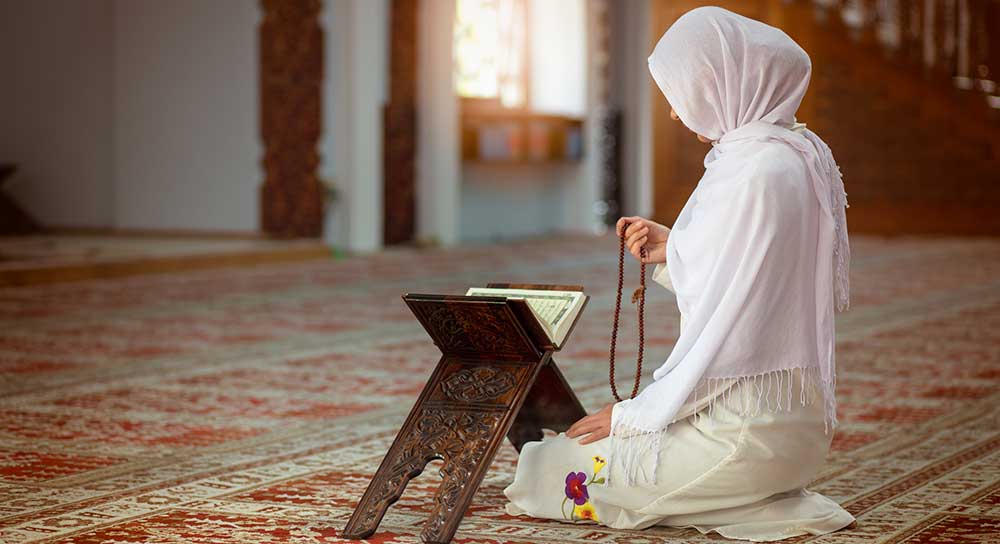It is essential to write a will for so many reasons. Writing a will in Malaysia is governed by the Wills Act 1959. The act only applies to non-Muslims.
For Muslims, they have the option to write a wasiat (bequests) and appoint a wasi (an executor) under Syariah law. Muslims are allowed to bequest a third of their wealth. The remaining two-thirds of their estate will be distributed to the Faraid heirs following Faraid proportions. Whilst a “wasiat” for Muslims and a will for non-Muslims serve the same purpose, completely different laws govern them in Malaysia.
Regardless of our faith, everyone must understand the significance of writing a will to ensure the seamless transfer of their assets and to safeguard the well-being of loved ones after their demise. Understanding the practice of will-writing is even more crucial in our multi-racial nation, considering the unique legal framework and cultural diversity.
This article will discuss writing a will for non-Muslims under the Wills Act 1959.
What is a will?
The Wills Act defines a will as “a declaration intended to have legal effect of the intentions of the testator concerning his property or other matters which they desire to be carried into effect after their death.“
In short, a will contains the following:
- An expression of the testator’s (the person making the will) wishes on how their assets must be distributed after their death.
- Provisions for the guardianship and custody of their children
- How the deceased’s funeral should be conducted; and
- Any other specific wishes or requests that the deceased may have
What happens if you don’t have a will?
If a person dies without a will, they are said to have died intestate. Dying intestate means passing away without having a valid will. This means the deceased person’s assets and properties will be distributed under the Distribution Act.
Under the Distribution Act 1958, the distribution of assets will be based on the statutory formula, which means that the assets will be distributed according to a predetermined hierarchy. This hierarchy includes the spouse, children, parents, siblings and other relatives.
Your wishes for your estate might be different from the intestate formula under Section 6 of the act. Drawing up a valid will is critical if you want your wishes and intentions for your property and children to be executed after your death.
Protecting Your Loved Ones: The Benefits of a Will
The most apparent benefit of drawing up a will is that YOU decide what happens to YOUR assets and children after your death.
By drawing up a will, you decide:
- Who are your beneficiaries
- How your assets will be distributed
- Who will be the guardian of your minor children
- Who will execute and administer your estate
By drawing up a will, you will be able to:
- Minimise the risk of family disputes after your death
- Speed up the finalisation of your estate
- Reduce administration costs
- Set up testamentary trusts for your children and other dependents.
- Bequeath money to charities of your choice
- Express your wishes for your funeral
How to write a valid will in Malaysia
For a will to be valid, it must comply with the formalities set out in the Wills Act, which read:
- The testator must be of sound mind.
- The testator must be 18 years or older.
- The will must be in writing and signed by the testator at the end of it.
- The testator must sign in the presence of two or more witnesses simultaneously.
Suppose the testator cannot sign the will themselves. In that case, another person can sign the will under the testator’s direction and in the presence of the testator and the witnesses.
The witnesses are the people who confirm that the will is a true reflection of what the testator wants.
Beneficiaries or their spouses cannot be a witness to the will.
What should be included in a will?
Writing a will is personal, and each testator will decide what to include in their will. There are, however, certain basic things that should be included.
- The testator’s name, NRIC number, address, and signature.
- A declaration that it is the last will of the testator – the last will clause
- The date of writing the will
- If relevant, a revocation clause referring to earlier wills
- Appointment of an executor
- Distribution clauses give directions on what assets must be distributed to which beneficiaries. Some testators prefer to provide for children and children yet to be born. This avoids writing a new will every time a child is born.
- Appointment of a guardian for minor children – if both parents pass away, any minor child must have a guardian. It would be best to choose who you want to be, the guardian of your children.
- Directions to settle debts and other testamentary expenses.
- Attestation clause
- Witness names, NRIC numbers, addresses, signatures, and dates of signatures.
- When specifying assets, it is essential to include all assets. Think of real property, such as houses, farms, land, buildings, etc., and personal property, such as jewellery, cash, investments, movable property, household items, etc. Assets also include intellectual property, trust property and assets you are entitled to receive in the future.
You are not required to specify all property, but specifying will make it much easier for your executor to locate and distribute your assets.
To provide for assets not specified, you should include a residuary clause. A residuary clause deals with the distribution of assets not mentioned explicitly in your will.
The role of an executor
A testator may appoint up to four executors (as long as they are 18 or older). A beneficiary may also be an executor.
The executor is responsible for the following:
- Identify and locate your will after you die
- Apply for a grant of probate from the court to administer your assets legally
- Identify and locate your assets.
- Advertise in newspapers or social media to locate any unknown or missing beneficiaries.
- Settle any debts and liabilities
- Distribute your assets according to your will
- Draw up a statement of account
When the executor takes charge of your estate, they become the trustee of your assets. They will hold the assets in trust until all your assets are distributed to your beneficiaries.
It makes sense that you should choose carefully when appointing an executor. If your estate is complex or highly valued, it could be wise to appoint a professional executor.
How long is a will valid for?
A will is valid until it is replaced by a new will, revoked in writing, or intentionally destroyed by the testator.
- A will is automatically revoked by marriage or remarriage unless the testator includes an “in contemplation of marriage” clause to prevent the automatic revocation upon a subsequent marriage.
- Divorce does not affect the validity of a will.
- Conversion to Islam– If the testator converts to Islam, the will is automatically revoked as they are now subjected to faraid
Should you rewrite your will?
Whether you should rewrite your will depends on the circumstances and if your will is still an accurate reflection of your intentions in your current circumstances.
Circumstances that may warrant a new will:
- Divorce, remarriage, or separation.
- The birth or adoption of a new child if your will does not provide for unborn or adopted children.
- Death of a beneficiary.
- Removal of existing or addition of new beneficiaries.
- Change of new executor or guardians
- Changes to legislation that could affect your estate or your beneficiaries.
When can a will be challenged?
Wills can be contested on any of the following grounds:
- The testator was mentally unfit at the time they wrote their will
- The wording of the will is ambiguous
- The will was written under suspicious circumstances, e.g., duress or undue influence.
- The content of the will was altered
- The signature was forged
- It was not properly witnessed
The estate will be distributed under the Distribution Act if the will is declared invalid. It will be as if the testator died without a will.
** TIPS: If you want to exclude someone, like a child or a spouse, you should do so expressly to avoid uncertainty. If there is any reason to doubt your soundness of mind, it is wise to have a doctor examine you and certify that you are of sound mind and capable of writing a will.
Can you write a will without a lawyer?
Yes, as long as your will complies with all the criteria and formality, it is valid. However, you risk having your will invalidated on any small oversight or misstep. Depending on the size of your estate and the number of beneficiaries, it can be complicated. You don’t want to risk ambiguities or forget about something or someone important.
It is not advisable to DIY your will, especially when you own high-value assets. Instead, you can hire a lawyer or engage with banks that provide will-writing services in Malaysia.
When is the best time to start writing a will?
Drawing up a valid will might be one of the most significant things you do in your lifetime. People often ask when they should draw up a will.
The answer: As soon as you are married and have children or assets, you should consider drawing up a will to express your wishes for what must happen upon your death.
If you want to be sure that your will is valid and transparent and that your wishes are correctly executed after your death, you should consult a lawyer for advice and guidance on drawing up a valid will.



